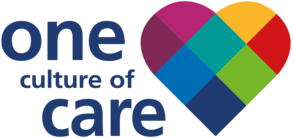During Diabetes Prevention week experts from the NHS Diabetes Prevention Programme, Healthier You, visited our maternity unit at CRH to raise awareness of the risks of diabetes for pregnant women.
Healthier You supports people identified as being at high risk of developing type 2 diabetes, and people with a history of Gestational Diabetes Mellitus (GDM) can now benefit from the programme. Of the 700,000 women that give birth each year in England, it’s estimated that 30,000 are diagnosed with GDM.
Anyone who is pregnant can develop GDM during pregnancy. However those more at risk of developing it may have a body mass index of over 30, have a family history of diabetes, have had a larger weight baby weighing over 4.5kg/10lb in a previous pregnancy and/or be from a South Asian, Black, African Caribbean or Middle Eastern background.
Up to half of people diagnosed with GDM go on to develop type 2 diabetes within five years of giving birth, and it can have other long-term consequences for someone’s health, including cardiovascular disease, obesity, and type 2 diabetes and/ or GDM in the child.
Rob Gibson, Calderdale Diabetes Programme Manager for NHS West Yorkshire Integrated Care Board, was part of the team urging people who may have a history of gestational diabetes to refer themselves to Healthier You, the NHS Diabetes Prevention Programme, to protect themselves and their babies from developing long term health problems.
He said: “Gestational diabetes can have serious implications for parent and baby, particularly given that it can lead to type-2 diabetes, so it’s important we make people aware of the support that’s on offer from the NHS.
“Anyone aged 18-79 who’s ever been diagnosed with GDM can self-refer to the Healthier You service without needing to speak to a health professional and receive free personalised support with healthy eating and lifestyle, increasing physical activity and managing their weight for nine months.
“It’s great to come here with Reed Wellbeing, who deliver Healthier You in West Yorkshire, to deliver such a positive message to the expectant mothers about the support that’s available to help keep them, and their families free from diabetes.”


